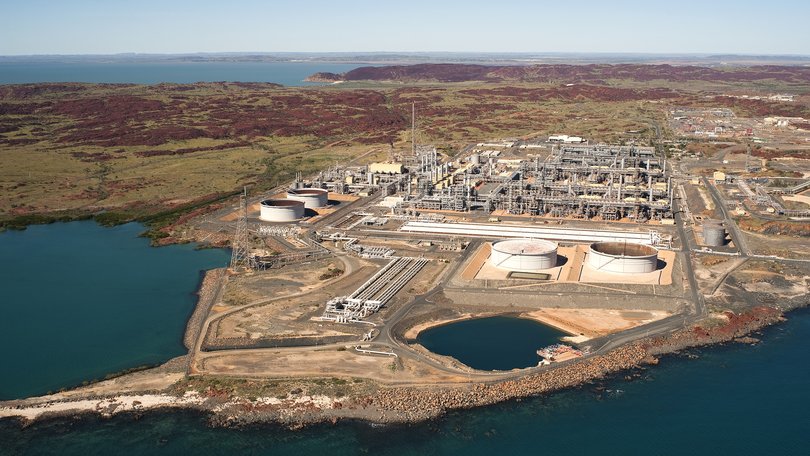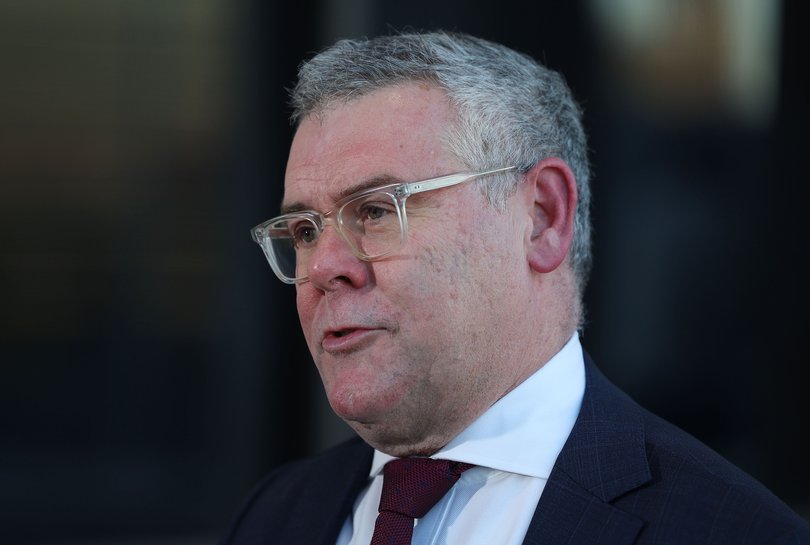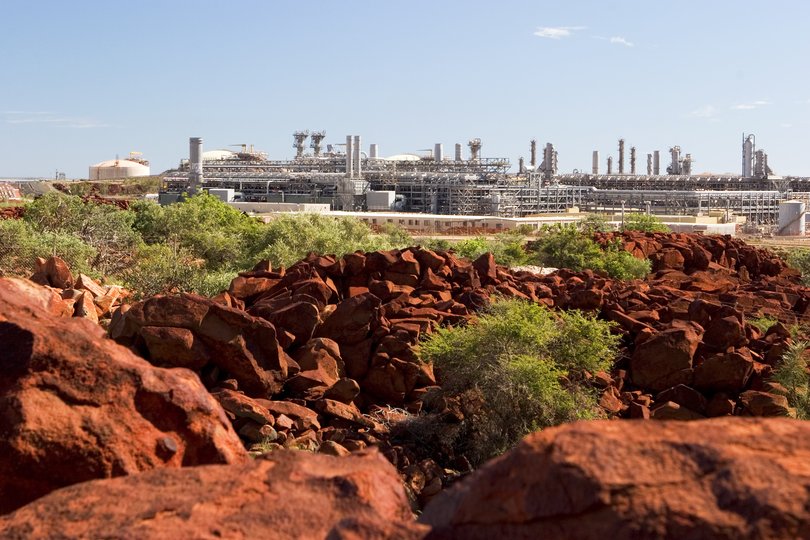North West Shelf: Woodside gas processing plant gets final approval from Murray Watt to run until 2070
Woodside’s North West Shelf gas processing plant has been given final approval to keep operating until 2070 with 48 strict conditions aimed at protecting nearby ancient Indigenous rock art.

Woodside’s North West Shelf gas processing plant has been given final approval to keep operating until 2070 but with strict conditions aimed at protecting nearby ancient Indigenous rock art.
The 48 conditions are additional to those imposed by the WA Government and include continuous monitoring of emissions and reductions of some gases by as much as 60 per cent below current levels.
Environment Minister Murray Watt said the protections would ensure there wasn’t “unacceptable” damage to the 50,000-year-old rock art.
Sign up to The Nightly's newsletters.
Get the first look at the digital newspaper, curated daily stories and breaking headlines delivered to your inbox.
By continuing you agree to our Terms and Privacy Policy.“What had to be taken into account here was whether there would be a significant impact on the rock art,” he said.
“As a result of these 48 conditions … which go beyond, in some cases, the conditions imposed by the WA Government, we believe we’ve achieved that.”

Mr Watt said he was “very invested” in protecting the rock art, adding that the legal requirement on him was to consider whether a particular activity would have a significant impact on the rock art.
He also issued a partial declaration under cultural heritage laws to protect the significant site at Murujuga and give time for the Murujuga Aboriginal Corporation, WA Government and local industry to work on heritage management plans.

Woodside said it was committed to protecting the Murujuga Cultural Landscape and was a proud supporter of the World Heritage nomination and assessment process. The Murujuga rock art was granted world heritage listing in July.
Liz Westcott, Woodside’s Australian chief operating officer, said the conditions imposed by the Federal Government were rigorous in their management of cultural heritage protection.
“This final approval provides certainty for the ongoing operation of the North West Shelf Project, so it can continue to provide reliable energy supplies as it has for more than 40 years,” she said.
The Murujuga Aboriginal Corporation said the end result gave specific, detailed and clear guidance on prohibitions and restrictions to preserve the heritage-listed sites.
“As the organisation representing the collective wishes and voices of the Ngarda-Ngarli who have been the traditional custodians of the Murujuga rock art for thousands of years, we are pleased to see the Federal Government’s commitment to add a further layer of protection to an area of such great significance to our people,” MAC chair Peter Hicks said.
“This extraordinary landscape has been managed and cared for by our ancestors for more than 50,000 years and is a sacred, spiritual and deeply storied place.
“Now, with this declaration, we have an even clearer way forward.”
The extension of operations at the processing plant is considered crucial to the viability of further opening up the Browse gas field.
The project has supplied more than 6000 petajoules of domestic gas to West Australian homes and industry over its operation so far, and paid more than $40 billion in royalties and excise.
The WA Government approved the operating extension in December after a six-year assessment process.
Senator Watt gave a provisional Federal approval in May, shortly after he was appointed to the environment portfolio, and the Government and Woodside have been in negotiations over the conditions over the past four months.
Chamber of Minerals and Energy WA policy director Anita Logiudice said the protracted approvals process to continue operations at an existing project underscored the need to overhaul the nation’s environmental laws.
“Delays kill projects. A rigorous and independent approvals system is critical – but so is providing proponents with a degree of certainty over timeframes,” she said.
Mr Watt said changes to the conditions in the final approval made them more specific and focused on technical feasibility.
CCIWA’s chief economist, Aaron Morey, said the project’s approval highlighted how vital gas was to the economy.
He added that the extension to the project would also allow Australia to play an ongoing role in helping its regional neighbours to decarbonise.
“Gas has fewer carbon emissions than coal when used for electricity generation, which will be critical to helping some of the world’s rapidly industrialising nations reduce their carbon footprint,” Mr Morey said.
The Albanese Government’s approval decision comes days after Vanuatu Minister for Climate Change Ralph Regenvanu argued that approving the project would be a breach of a ruling by the International Court of Justice.
Green groups, including the Australian Conservation Foundation, condemned the extension approval.
“The conditions can’t alter the fact the Albanese government is responsible for granting one of the world’s largest gas approvals while the planet is engulfed in a climate crisis,” ACF’s climate program manager Gavan McFadzean said.
“The Albanese government’s progress on renewables at home is wiped out by its continued support to expand Australia’s gas exports.”
Senator Watt said Australia’s climate credentials were strong under the Albanese Government and that it had restored the nation’s standing within the Pacific.

